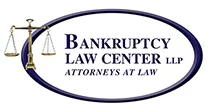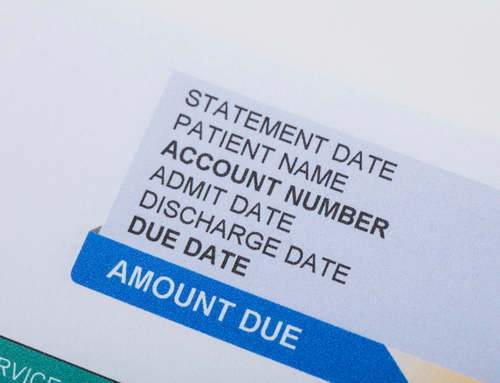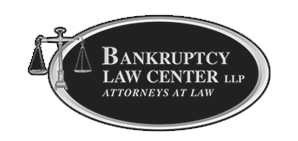 In response to the foreclosure crisis, bankruptcy courts in several districts, including the Eastern District of Wisconsin, have adopted mortgage modification mediation programs. These programs attempt to provide some relief to debtors, especially those whose homes are in foreclosure or whose loan terms are more than they can afford. They allow parties to discuss mortgage modification in an informal setting as well as to provide a “fast track” for both the debtors and the lenders. The mediations are for negotiation purposes only and neither the debtors nor the lenders are required to enter into any agreement. The Bankruptcy Court will not force any modification and will make no adjudication except with the consent of both parties. Common issues to negotiate include a reduced interest rate (either temporary or permanent), moving payment for mortgage arrears to the end of the loan, and, in some instances, reducing the principal. Any or all of these outcomes are possible and will greatly improve the success of a Chapter 13 plan.
In response to the foreclosure crisis, bankruptcy courts in several districts, including the Eastern District of Wisconsin, have adopted mortgage modification mediation programs. These programs attempt to provide some relief to debtors, especially those whose homes are in foreclosure or whose loan terms are more than they can afford. They allow parties to discuss mortgage modification in an informal setting as well as to provide a “fast track” for both the debtors and the lenders. The mediations are for negotiation purposes only and neither the debtors nor the lenders are required to enter into any agreement. The Bankruptcy Court will not force any modification and will make no adjudication except with the consent of both parties. Common issues to negotiate include a reduced interest rate (either temporary or permanent), moving payment for mortgage arrears to the end of the loan, and, in some instances, reducing the principal. Any or all of these outcomes are possible and will greatly improve the success of a Chapter 13 plan.
The program is streamlined to reduce costs, save considerable time, and make it easier for the parties to facilitate a loan modification. Mortgage Modification Mediation in the Eastern District of Wisconsin has helped several people work out meaningful mortgage modifications.
Advantages to Combining Foreclosure Loss Mitigation with Bankruptcy
Bankruptcy offers several distinct advantages to either help you save your home, or to avoid a deficiency judgment if you do lose your home through foreclosure.
Lender cannot get a deficiency judgment. While a discharge in bankruptcy does not eliminate the first mortgage lien on your property, it does get rid of your personal obligation on the debt. This means that a mortgage holder who forecloses on your property after you have filed for bankruptcy generally cannot get a deficiency judgment against you if the value of the property is not enough to fully satisfy the debt.
Lenders are more likely to consider non-foreclosure alternatives. As a result, once you file for bankruptcy, if the mortgage holder continues with the foreclosure, the recovery will likely be limited to the value of the property. Because the lender does not have other avenues for recovery (such as a deficiency judgment), it may be more likely to consider alternatives.
Eliminating other debts and second mortgages frees up money. Bankruptcy also clears other debts and makes it possible to eliminate second mortgages if the property is worth less than the first mortgage. This can help free up money to be applied toward your first mortgage.
Bankruptcy Court Programs Gaining in Popularity
Bankruptcy courts, like all other courts, want to resolve issues and clear their calendars. Many individuals that file for bankruptcy, particularly Chapter 13 bankruptcy, are still in the process of trying to resolve their foreclosure issues and save their homes or obtain other resolutions which allow them to find an affordable option for housing. Left unresolved or languishing in overburdened state courts, the bankruptcy proceedings are often delayed.
Loss Mitigation Programs vs. Mediation
The programs that are available vary by district. Some courts have adopted foreclosure mediation programs while others have adopted more flexible loss mitigation programs which allow the debtor and the mortgage holder to design their own approach within certain parameters.
The approach may vary from face to face meetings to telephone conferences, with or without the assistance of a mediator.
Similarities Between Mediation and Loss Mitigation Programs
Virtually all of the programs require the mortgage holder to designate one particular person, with full settlement authority, to participate in the negotiations. The debtor, in order to participate, must also provide full financial documentation to the mortgage holder in advance of the negotiations similar to that required for modification applications. Some courts require paper copies to be provided while others provide a portal for uploading documents through the Internet, thereby eliminating disputes as to what exactly has been provided. Generally, once the procedure is requested, time deadlines are imposed.
Differences Between Mediation and Loss Mitigation Programs
While many loss mitigation programs are more flexible, mediation has the benefit of having the actual negotiations monitored by a third party whose sole job is to attempt to facilitate a resolution. The mediator has the ability to make suggestions which might not otherwise be considered and assist the parties in evaluating options without the pressure of being a party to the dispute.
Some loss mitigation programs provide for the parties to request a mediator to assist with the negotiations. Attorneys who have participated in the bankruptcy mediation programs report that, similar to other types of mediation, they are most effective when both parties are required to participate in person.
Who Can Participate?
Any Chapter 13 debtor looking to modify the terms of the mortgage to his or her residence.
Who Is the Mediator?
Generally, the courts have lists of approved mediators. The mediators are usually attorneys or accountants who have qualified to be certified mediators in the district by completing certain approved mediation courses and satisfying educational and practice requirements. In most cases, the parties choose the mediator or request that a mediator be appointed by the court if the parties cannot agree on one.
How Is the Mediator Compensated?
The parties share the cost of the mediator equally. Each district sets its own fee structure. In the Eastern District of Wisconsin, the Chapter 13 debtor pays a non-refundable fee of $200 for the mediation, as well as a $25 document filing fee.
Voluntary Program
While some courts have had great success with their programs, the truth is that there is no statutory authority for loss mitigation programs in the bankruptcy courts. As such, the programs are greatly dependent on cooperation of the parties and the voluntary participation of the mortgage holders. Courts can set time deadlines, hold status conferences and otherwise encourage resolution but if they apply too much pressure, the lender could challenge the program through litigation.
If you want to find out more information on mortgage modification mediation in the Eastern District of Wisconsin, contact the attorneys at the Bankruptcy Law Center today.





